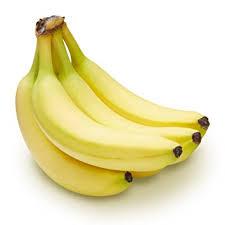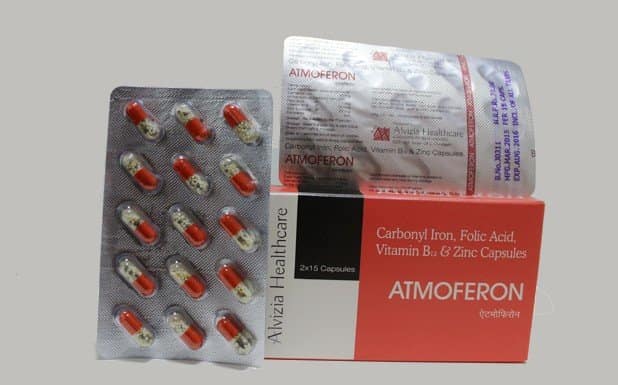Vitamins help us stay healthy. The main source of Vitamins is the food we eat. Vitamins are only needed in small
amounts and most people can meet their vitamin needs by eating a variety of healthy foods. Some people may need extra
vitamins to help them meet their needs. Different vitamins have different roles, and they are needed in different quantities.
Each organism has different vitamin requirements. Vitamins are essential to normal metabolism. If we do not take enough of
any kind of vitamin, certain medical conditions can result. There are currently 13 recognized vitamins. Vitamins are of two
types either water-soluble or fat-soluble.
Fat-soluble vitamins are easier for the body to store than water-soluble.
What are water soluble and fat soluble Vitamins?
Fat soluble vitamins
Fat soluble vitamins are stored in the fatty tissues of the body and the liver. Vitamins A, D, E, and K are fat soluble VITAMINS.
These are easier to store than water soluble vitamins. Fat soluble Vitamins needs to be taken only through our diet, this is because
the human body does not produce enough of them. High amounts of fat soluble vitamins are not recommended, as these can cause health
problems.
Water soluble vitamins
Water-soluble vitamins include vitamins B1, B2, B3, B6, B12, vitamin C, biotin and folate. They are not stored in large amounts in the
body. Water-soluble vitamins do not stay in the body for long because of this water soluble vitamins need to be replaced more often
than fat-soluble ones.
What are the 13 Different Types Of Vitamins? What are their uses?
Vitamin A
 It is fat soluble. Deficiency may cause night-blindness and keratomalacia, an eye disorder that results in a dry cornea. Too much
vitamin A can hurt your liver. It helps in making red blood cells and fight infections. It prevents damages to cells.
It is fat soluble. Deficiency may cause night-blindness and keratomalacia, an eye disorder that results in a dry cornea. Too much
vitamin A can hurt your liver. It helps in making red blood cells and fight infections. It prevents damages to cells.
Sources: Liver, cod liver oil, carrots, broccoli, sweet potato, butter, spinach, some type of cheeses, egg, apricot, melon, shrimp,
salmon and milk.
Vitamin B1 (Thiamin)
It is water soluble. Deficiency may cause beriberi. It used in energy production.
Sources: Yeast, pork, cereal grains, sunflower seeds, brown rice, whole-grain rye, asparagus, cauliflower, potatoes, oranges,
nuts, black beans, lentils, and eggs.
Vitamin B2 (Riboflavin)
 It is water soluble. It helps with energy production in your body. Helps your body use other B vitamins.
It is water soluble. It helps with energy production in your body. Helps your body use other B vitamins.
Sources: Asparagus, banana, green veggies, chard, cottage cheese, milk, yogurt, meat, eggs, bread, soyabean, mushrooms and
green beans.
Vitamin B3 (Niacin)
 It is water soluble. Helps your body to use protein, fat and carbohydrate to make energy and store it. It helps protect your skin and
tissues.
It is water soluble. Helps your body to use protein, fat and carbohydrate to make energy and store it. It helps protect your skin and
tissues.
Sources: Liver, heart, kidney, chicken, beef, fish (tuna, salmon), milk, eggs, avocados, dates, tomatoes, leafy vegetables, broccoli,
carrots, nuts, whole-grains, peanut butter, mushrooms, and brewer's yeast.
Vitamin B6 (Pyridoxine)
 It is water soluble. Deficiency may cause anemia. It plays important role in body reaction. It helps your body to make and use protein.
Helps form hemoglobin which carries oxygen in your blood.
It is water soluble. Deficiency may cause anemia. It plays important role in body reaction. It helps your body to make and use protein.
Helps form hemoglobin which carries oxygen in your blood.
Sources : Meats, bananas, whole-grains, vegetables, nuts, avocados, and watermelon.
Vitamin B12
 It is water soluble. Deficiency may cause certain type of anemia. It helps in the proper functioning of the nerves.
It is water soluble. Deficiency may cause certain type of anemia. It helps in the proper functioning of the nerves.
Sources: Fish, shellfish, meat, poultry, eggs, milk, yoghurt, cheese, beverages, rice and soy products.
Vitamin C
 It is water soluble. It prevents cell damage. Vitamin C to help your bones, skin, and muscles grow.
It is water soluble. It prevents cell damage. Vitamin C to help your bones, skin, and muscles grow.
Sources: Fruits like strawberries, kiwi, orange, grape fruit, mango, papaya, and fruit juice from orange, grapefruit. Red, yellow
and green peppers, broccolli, tomatoes and certain vegetables.
Vitamin D
It keeps your bones and teeth strong and helps your nerves carry messages. It also plays a role in fighting germs. Protects against
infections by keeping your immune system healthy.
Sources: Exposure to the sun for 10 to 15 minutes on a clear day without sunscreen is the best source. Or you could eat fish such as
salmon, tuna, and milk.
Vitamin E
 It is fat soluble. It acts as an antioxidant and protects cells from damage caused by cigarette smoke, pollution, sunlight, and more.
Vitamin E also helps to maintain a healthy immune system.
It is fat soluble. It acts as an antioxidant and protects cells from damage caused by cigarette smoke, pollution, sunlight, and more.
Vitamin E also helps to maintain a healthy immune system.
Sources: Kiwi fruit, almonds, avocado, eggs, milk, nuts, leafy green vegetables, and whole-grains, Sunflower seeds, hazelnuts, peanuts,
vegetable oils (like safflower and sunflower), spinach, soyabean, turnip and broccoli.
Vitamin K
 It is fat soluble. It helps in blood clotting when you are bleeding. Deficiency may cause an unusual susceptibility to bleeding.
It is fat soluble. It helps in blood clotting when you are bleeding. Deficiency may cause an unusual susceptibility to bleeding.
Sources: Leafy green vegetables like spinach, kale, or broccoli , avocado, kiwi fruit, Parsley, sunflower seed and peanut butter.
There are certain medicines which are a direct source of Vitamins. A medicine by Alvizia HealthCare Atmoferon capsule is a great source
of VITAMIN B12. THE following are the compositions of the capsule:
 Carbonyl Iron 50 mg, Folic Acid 1 mg, Elemental Zinc 25 mg and Vitamin B12 5 mcg
Carbonyl Iron 50 mg, Folic Acid 1 mg, Elemental Zinc 25 mg and Vitamin B12 5 mcg
For furthur details. VISIT alviziahealthcare.com